|
|
| |
| EVENTS |
|
|
> Second Session of Youth Parliament Pakistan 2008-09 concludes
|
| |
|
YPP 2008 Second Session
January 05, 2009
Hotel Margalla, Islamabad
|
|
| |
Session Summary
This was the second of the five sessions scheduled for the term 2008-09 which began in September 2008. As planned, the house met in Islamabad on December 31, 2008 and held six plenary sittings spanned over five days ending on January 04, 2009. The agenda of the house included the recent Mumbai Bombings and subsequent escalation of Pakistan India conflict in which prospects of aggressive international diplomacy were discussed. The session also hosted experts: Prof. Laeeq Ahmed Khan, renowned academician; Mr. Hamid Khan, Former President, Supreme Court Bar Association and Mr. Salman Shah, Former Advisor to the President on Finance. The experts were invited to brief members of the Youth Parliament over the highlights of the business to provide them with current knowledge and grasp on the issues under discussion, which were: the State of Education, Independence of Judiciary and State of Economy in Pakistan. |
|
| |
Mr. Wazir Ahmed Jogezai, Former Deputy Speaker of the National Assembly and Mr. Illahi Bukhsh Soomro, Former Speaker of the National Assembly took turns in presiding the Youth Parliament while Dr. Donya Aziz, MNA and Engr. Khurram Dastgir, MNA, acted as party advisors to the Blue and the Green Party, respectively.
|
|
| |
The First Sitting
In the first sitting held on December 31, 2008 the Prime Minister reshuffled his cabinet by adding two new ministers: Mr. Waqas Aslam Rana (YP38-PUNJAB19) as Minister of Finance, Planning Affairs and Economics and Ms. Hira Batool Rizvi, (YP15-NWFP03), as Minister for Cuture, Sports and Youth Affairs.
Mr. Wazir Ahmed Jogezai took oath of the reshuffled ministers in addition to the three newly inducted members of the Youth Parliament: Mr. Niaz Mustafa (YP27-Punjab08), Mr. Jamal Uddin (YP52-Sindh04) and Mr. Imdad Ullah (YP47-Punjab28).
The business began with a resolution moved by Ms. Sama Paras Abbasi (YP60-SINDH05), Mr. Muhammad Abdullah Zaidi (YP53-Sindh05) and Syed Muhammad Nishat Ul Hassan Kazmi (YP20-PUNJAB01). The resolution urged the government to take measures on de-escalating the war hysteria while also sending a tough message to the Indian Government. The resolution also condemned the war drums that the Indian Government was beating as evident from the gross airspace violation of Pakistani territory on December 13, 2008 by the Indian Air Force. In the debate that followed the MYPs unanimously agreed on not only having a resilient but also a unanimous stance to check against external dictation and deadline prescriptions. They condemned the diplomatic fumbling that ensued after the Indian airspace violation and urged the government to act responsibly and coherently to save Pakistan�s diplomatic impression in the international community, from crumbling. The house unanimously condemned these actions and the resolution was passed with a unanimous vote.
Next in the business was a motion moved by Mr. Farrukh Jadoon (YP13-NWFP01) requesting the house to discuss the possibility of probing Benazir Bhutto�s murder case with the help of local investigative authorities instead of those from abroad. The United Nations has still not delivered in this regard, he reminded the house. The house demanded setting up of a multi-party committee inside Pakistan for probing the case further. They said, investigations need to be carried out quickly, within Pakistan and by Pakistani investigative apparatus. Foreign help, conversely, may not be sought unless foreign involvement in this case surfaces. This motion was also passed by the house on unanimous vote.
The last business was a resolution pertaining to indiscriminate violence against the Palestinian people in the GAZA strip; the mover, Mr. Waqar Nayyar, (YP05-BALOCHISTAN03), urged the International Community and the UN, in particular, to pressurise Israel to halt such barbaric acts of violence, right away. The resolution invited a lot of argument over the issue of acknowledging Israel as a State in order to manifest Pakistan�s diplomatic as well as commercial behavior on the country, to achieve the desired effect. The house was of unanimous opinion that beyond verbosity was required to bring such an important humanitarian issue to fore. This notice was also laid and unanimously accepted by the house. |
|
| |
The Second Sitting
The business today was based on State of Education in Pakistan. To begin, a resolution was moved by Mr. Ahmed Javed (YP23-PUNJAB04), Mr. Aurangzeb Marri (YP55-SINDH07) and Mr. Mohsin Saeed (YP29-PUNJAB-10) over exploring means to improve vocational and technical education in the country; it was further added that doing so would enable the country with nearly 150,000 job opportunities per annum, in addition to remittances worth USD 3.5 billion. The house reflected with affirmative to this and unanimously agreed that no industry can prosper without proper technical and vocational education. This resolution was therefore passed on a unanimous vote.
Later, Youth Parliament Pakistan hosted Prof. Laeeq Ahmed Khan, Renowned Educationist as a Guest Speaker to speak on the subject of State of Education. Prof. Laeeq gave a historical overview of the state of education in Pakistan. He said that the diversity in education systems reflects the democratic spirit and is a healthy trend since it works like a safety net for those who cannot afford expensive options as well as those who prefer a set ideology and mode of education for their children. Youth Parliament agreed to the policy suggestion of Prof. Laeeq of setting up a National Commission on Education that would supervise the quality of education, consistency of curriculum and various education systems in the country.
After lunch recess, a motion was moved by Muhammad Sadan Nasir (YP06-BALOCHISTAN04), Mr. Usman Ali (YP18-NWFP06), Ms. Sor Fabha Alvi (YP14-NWFP02) and Mr. Bilal Ahmed (YP24-Punjab05) requesting the house to discuss the prospects of implementing a uniform education system. The house witnessed intense debate over having a unitary form of system after which the motion was referred to the Standing Committee on Education, Health and Environment for review.
Mr. Wazir Ahmed Jogezai presided the House while dignitaries such Dr. Ashfraf Chaudhry, Member of the Parliament, New Zealand, who was visiting Pakistan on PILDAT invitation and Senator S. M. Zafar, who is also Chairman, Steering Committee on Youth Parliament Pakistan, sat in the visitors� gallery to witness the session in process. |
|
| |
The Third Sitting
The Youth Parliament discussed the prospects of restoration and Independence of the Judiciary in the country. The MYPs demanded immediate restoration of Chief Justice Iftikhar Muhammad Chaudhry stressing on uncompromised and complete autonomy of the most important institution of governance. Mr. Illahi Bukhsh Soomro, Former Speaker of the National Assembly, who presided the session, commended the house on its punctuality and attendance. The session also hosted Mr. Hamid Khan, Former President of Supreme Court Bar Association, to speak on independence of judiciary.
Business of the house began with a calling attention notice moved by Mir Fahad Iqbal (YP61-SINDH13) and Umair Zafar Malik (YP33-PUNJAB) regarding unauthorised favours given to the daughter of de-facto Chief Justice of Pakistan and reluctance of the authorities to actively investigate the issue. It was felt by the house that the government should undertake a transparent and unbiased investigation of the case.
Next in business was a resolution moved by Syed Ansar Hussain (YP12-NA01), Syed Mohsin Raza (YP56-SINDH08) and Mr. Suffian Ahmad Bajar (YP39-Punjab20) that urged the government, representatives of the lawyers� community and the opposition to hold a comprehensive dialogue in order to smoothen out their long standing differences coming in way of the restoration of judiciary. They stressed on settling controversial issues on priority, to steer the country out of the judicial lurch and thus restore the true sense of democracy. The house agreed that good governance is a provision of three basic civil rights: good political governance; good economic governance and good civic governance and all these require the yardstick of justice. After an avid debate from both the sides the resolution was unanimously passed.
After this the YPP hosted Mr. Hamid Khan, to speak on Independence of Judiciary in the country. Mr. Hamid Khan stressed that for the restoration of democracy, restoration of the Judiciary is an essential prerequisite. The final business of the house was a resolution moved by Mr Rafiq Wassan (YP59-SINDH11), Syed Waqar Ali (YP01-AJKO1), Muhammad Khalil Tahir (YP02-AJK02) and Mr. Ahsan Yousaf Chaudhry (YP42-PUNJAB23). This resolution asked for reformation of judicial structure of Pakistan while taking the legal fraternity into confidence over the reforms. The mover gave some reform proposals that ranged from evening courts; increase in the salaries of the judges; carrying out special trainings, computerization of judicial records, electronic postal systems and hearings to be carried out publicly. They also supported setting up of the national committee initially proposed by the guest speaker. Ms. Hira Batool Rizvi (YP15-NWFP03) Minister for Culture, Sports and Youth Affairs also pointed out the stigmatisation of the profession of law and discouragement of women in the society to join the profession. The opposition criticized the resolution over: availability of funds for the proposed increase in salary and induction of staff; for evening courts and its maintenance; access to electronic mailing system in rural areas and the secrecy of sub-judicial procedures. On account of various procedural implications, the resolution was referred to Standing Committee on Law and Parliamentary Affairs and Human Rights for review. |
|
| |
The Fourth Sitting
The fourth day of the second session of the Youth Parliament Pakistan began with the address of the Guest Speaker, Dr. Salman Shah, Former Advisor to the Prime Minister on Finance, who spoke on the topic of State of Economy in Pakistan. Dr. Shah stressed on the rising proportion of foreign remittances that have emerged to be a major source of revenue for the country. He also identified that a major chunk of country�s demography comprises the youth under 25 years of age which is an explosive asset for us and can either make us or break us. He talked about cultivating investor-friendly environment and building up of �brand image� for the country on which he said he had worked intensively while in office.
Business of the house comprised two resolutions on tax structure reform. The first resolution was moved by Mr. Waqas Aslam Rana (YP38-PUNJAB19), Mir Fahad Iqbal (YP61-SINDH13), Mr. Ahmed Noor (YP08-FATA01) and Mr. Muhammad Abdullah Zaidi (YP53-SINDH05). It proposed tax reform by taking steps to stop tax evasion, increasing the proportion of direct taxation, widening the tax base and imposing capital and property gains and agriculture tax. Contentions that surfaced in the ensuing debate were over increasing farmers� tax versus revising the structure of tax collection procedure that would target industrialists and landlords who evade tax blatantly. A stalemate situation over agriculture tax compelled the Prime Minister to refer the resolution to the steering committee for further discussion. This resolution was thus referred to Standing Committee on Finance, Planning Affairs and Economics.
The last business was a resolution moved by Mr. Ahmed Javed (YP23-PUNJAB04), Umm-e-Ammara Hikmat (YP19-NWFP07), Waqas Aslam Rana (YP38-PUNJAB19) and Chaudhry Usman Ahmad (YP41-PUNJAB22). The resolution was further revised by Syed Muhammad Nishat-ul-Hassan Kazmi (YP20-PUNJAB01). This resolution urged the house to minimise reliance of the government over International Financial Institutions through better fiscal planning, budget allocation and reform of the financial sector. Talking of the recent IMF (International Monetary Fund) Loan Mr Ahmed Javed (YP23-PUNJAB4) pointed out that IMF functions to provide countries with, Exchange rate stabilisation; Financial Crisis Management; Crisis Management; Financial Policy Coordination and Surveillance which undertakes implementation of financial reforms. He said that the country�s financial machinery: Planning Commission and Ministry of Finance are intact and to accept IMF�s assistance is to implicitly accept that our financial apparatus is dysfunctional. MYPs also urged the government to reduce budget on luxury items and imported cars used by the bureaucracy. They also stressed on reinforcing the efforts to employ indigenous assets of manpower; maximise agricultural and remittance revenues; enable farmers to work on uncultivated lands and produce bio fuel to lessen our oil dependence. They also urged the government to improve �brand image� of the country and if possible renegotiate the terms with IMF. The resolution was passed in the house with a unanimous vote.
Mr. Illahi Bukhsh Soomro presided the session and gave his guidance over traditions of the parliament as and when required. During lunch recess, Dr. Salman Shah mingled with the members of the Youth Parliament and answered their questions. Mr. Soomro, commended the efforts of PILDAT and appreciated the level of enthusiasm among this term�s members of the Youth Parliament. |
|
| |
The Fifth and sixth Sitting
On the last day, the two sittings, punctuated by a lunch recess carried business over a miscellany of topics ranging from problems of public transport, to social discrimination of women, to cricket.
First was a resolution moved by Miss Saadia Waqar un Nisa (YP31-Punjab12), Hira Batool Rizvi (YP15-NWFP03), Afsana Afsar (YP45-Punjab26), Umme Ammara (YP19-NWFP07), Sor Fabha (YP14-NWFP02), Gul Bano (YP54-Sindh06) and Sama Paras (YP60-Sindh12) condemning social discrimination in form of Women Rights� Violations and urging the authorities to bring it to immediate halt by adopting proper measures. The movers brought in consideration of the house, atrocities ranging from domestic violence, to forced marriages, to marital rape, to karokari, to honour killing, to women used as ransom, commodity, and prostitution. The house also commented on under-reporting such cases as well as police involvement in the violence against women and �muk muka�. The role of print media and electronic media was identified as pivotal in spearheading awareness programs, implementing government policies, as well as reporting and monitoring violence against women. This resolution was also unanimously passed.
Next in business was a resolution passed by Mr. Samir Anwar Butt (YP10-ICT01), Mr. Yawar Hayaat Shah (YP22-PUNJAB03), Mr. Zamir Ahmed Malik (YP10%-SINDH02), Mr Taimur Sikandar Chaudhry (YP40-PUNJAB21) and Mr. Asad Asghar Janjua (YP37-PUNJAB18). This resolution demanded of the government to promote modes of Public Transportation. They were of view that increasing number of cars are an added burden on economy and infrastructure and a leading cause of pollution. Speaking on the issue the movers argued that although commuting is a rising demand of the working class yet car leasing is only a short-term solution to the problems with many undesirable spin-offs. The increasing number of cars has added to logistical and infrastructural costs of building roads, while also disturbing our balance of payments, since both car and oil are imported commodities. We need to come up with a long term solution to the problem especially in the urban centers either through launching mega projects or by revamping existing public transportation, they argued. The movers reminded the house of the Lahore Underground Train Plan queued up for the last six years, and urged the government to materialize the project. This, the movers felt would also address the problem of rising pollution which is a leading cause of various respiratory diseases. MYPs also drew the attention of the parliament toward unchecked transportation fair and proposed a regulation to put a cap on prices. They also suggested leasing incentives to public transport businesses, encourage public private partnerships as well as to supervise the quality, price and condition of privately run public transport businesses. Assembling houses and locally manufacturing car companies were proposed to be promoted and encouraged through appropriate facilitation. This resolution was also unanimously passed.
Later, the Standing Committee on Education, Health and Environment presented a report titled: �the revival of Student Unions� in Pakistan to the Youth Parliament. The Chair of the Standing Committee, Mr. Umair Farrukh Raja (YP36-Punjab17) said that the report contains recommendations on orderly and peaceful revival of students� unions and will be presented to the Ministry of Education by the Youth Parliament Pakistan 45%8-09. The report was appreciated and approved by the house in unanimity.
Later, Leader of the Opposition revised his shadow ministers, replacing the former minister of Foreign Affairs and that of the Information Ministry to Mr. Abdullah Khan Laghari (YP48-Punjab29) and Mr. Moin Akhtar (YP30-Punjab11), respectively.
The last business of this session was a motion moved by Mr. Amir Ejaz (YP32-PUNJAB13), Mr. Nishat Ul-Hassan Kazmi (YP20-PUNJAB01) and Mr. Umair Zafar Malik (YP33-Punjab 14) The motion was on the recent cancellation of the official tour of Indian cricket team to Pakistan and subsequent cancellation of the official tours to India by the Hockey and Squash Federations of Pakistan. Speaking on the issue the movers argued that although sports should be dissociated from politics at best, it is the Indian side, that is mounting propaganda and offensive against Pakistan, both regionally and internationally. They said that Pakistan should not give in to Indian diplomatic maneuvers in the realm of international sports and should request the International Cricket Council to question the cricket boards of countries who fail to meet their commitments as agreed in the ICC�s (International Cricket Council) annual schedules. They said that India�s refusal to play with Pakistan in the neutral avenues, too, is a diplomatic ploy to further depreciate Pakistan�s impression in the international community. The members urged Pakistan Cricket Board to restore Muhammad Yousuf�s membership in the national team and said that the wish of our star players should be respected as by doing so Pakistan will manifestly express its policy of not bringing politics in sports as in the case of India. Members were of the view that Pakistan, its citizenry and government remains keen on having good relations with all its neighbours, including India provided that good relations can only be mutually anticipated. They reminded the house that Pakistan has successfully held Asia�s largest cricket tournament the Asia Cup without any glitches and thus has the capability to host international cricket tournaments. However the house felt that in the backdrop of surgical strikes and propaganda warfare there is no time to play cricket. The motion was referred to the Standing Committee on Sports, Culture and Youth Affairs. |
|
| |
After this, the Speaker prorogued the session sine die. |
|
| |
|
|
| |
|
|
| |
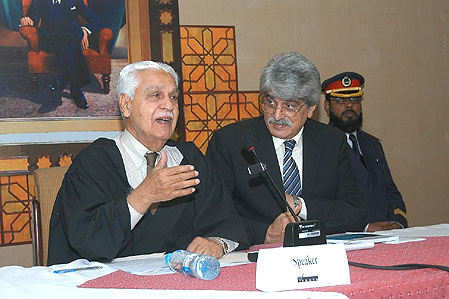
|
|
| |
|
|
| |
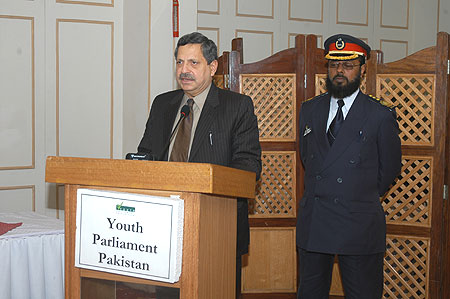
|
|
| |
|
|
| |
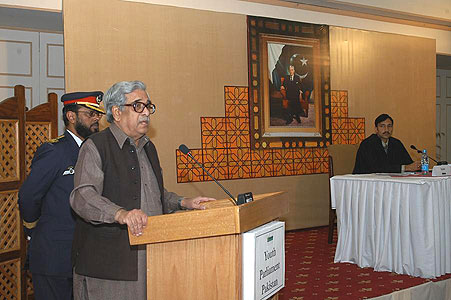
|
|
| |
|
|
| |
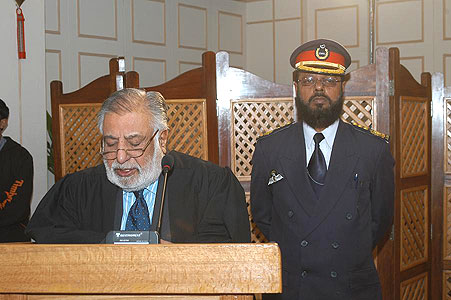
|
|
| |
|
|
| |
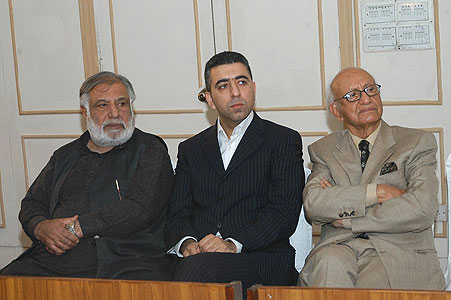
|
|
| |
|
|
| |
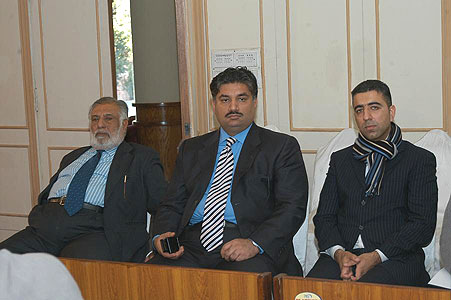
|
|
| |
|
|
| |
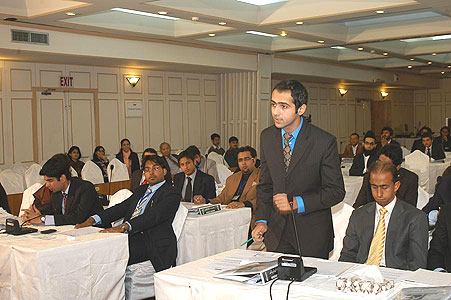
|
|
| |
|
|
| |
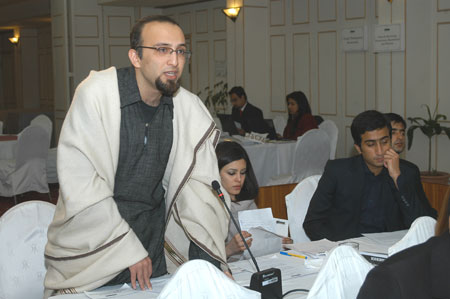
|
|
| |
|
|
| |
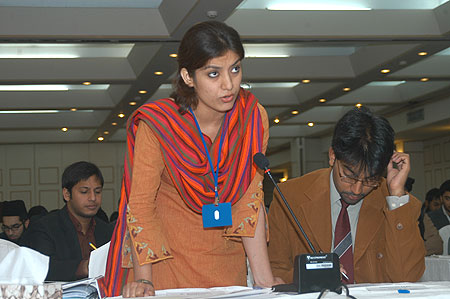
|
|
| |
|
|
| |
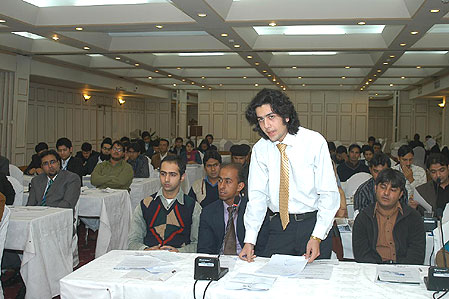
|
|
| |
|
|
| |
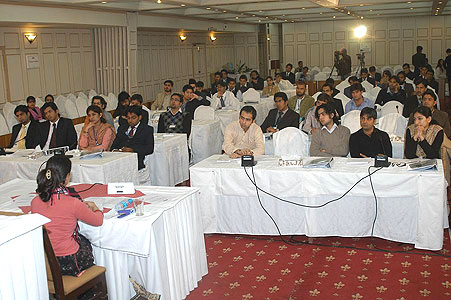
|
|
| |
|
|
| |
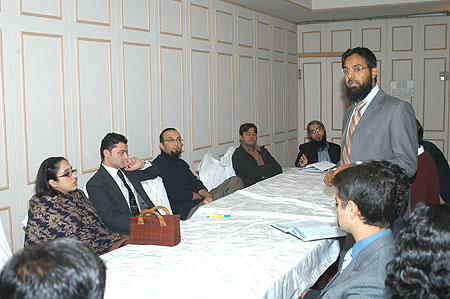
|
|
|
|
|
|
|
|
|